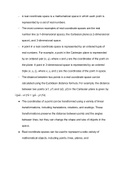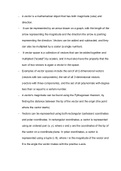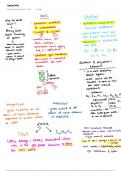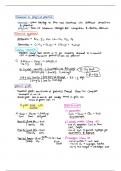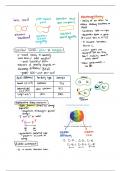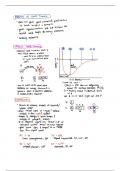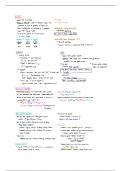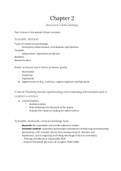Rutgers University - New Brunswick/Piscataway
Latest uploads at Rutgers University - New Brunswick/Piscataway. Looking for notes at Rutgers University - New Brunswick/Piscataway? We have lots of notes, study guides and study notes available for your school.
-
131
- 0
-
4
All courses for Rutgers University - New Brunswick/Piscataway
Latest notes & summaries Rutgers University - New Brunswick/Piscataway
Notes for Linear Algebra unit 2
Notes on Linear Algebra from units 1-5
General Chemistry I: Compounds and Bonding - Discusses ionic vs covalent compounds, empirical vs molecular formula, lattice energy, nomenclature with anions and cations, polyatomics, ad naming hydrates.
General Chemistry I: Chemical Reactions - chemical vs physical properties, chemical equations, limiting reactants, percent yield, important reactions.
General Chemistry I: Chemical Bonding (1 of 2 documents of subject) - Discusses ionic, polar covalent, and covalent bonds, polar vs non-polar, electronegativity, dipole moments, ionic character, lewis structures, oxyanions, resonance, formal charge, exceptions to the octet rule, average bond energy, average bond length, shape of molecules using valence shell electron pair repulsion (VSEPR), electron group geometry vs molecular geometry, molecular polarity, and water's polarity.
General chem I - chemical bonding (2 of 2 documents for chemical bonding): Discusses Lewis Theory, valence bond theory, hybridization, orbital overlap (pi and sigma bonds), bonding scheme, and orbital energies with diagrams for sp3, sp2, sp, sp3d, and sp3d2.
General chemistry I acids and bases notes: naming, acid-base reactions, gas-evolution reactions, redox reactions, and oxidation numbers.
Key Terms with Definitions all from Chapter 2 of Psychological Science Ebook
Definitions (name/definition) of all key term words within Psychological Science Chapter 1
Summary and Lecture Notes of Chapter 2: Research Methodology Learning Objectives: 1. Identify the three primary goals of science 2. Describe the scientific method 3. Differentiate among theories, hypotheses, and research

